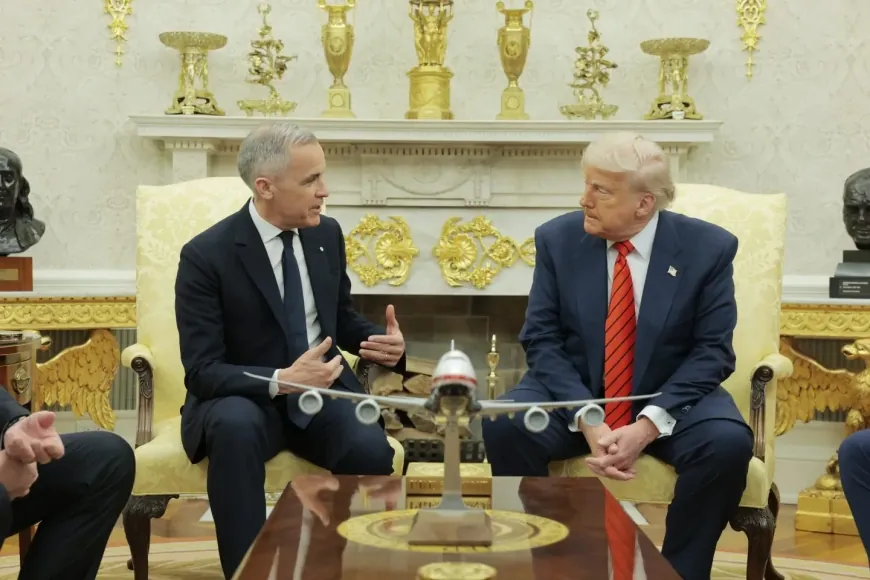Trump Says U.S. Could Impose Tariffs if Trade Deal With Canada Fails
President Trump says the U.S. may put tariffs on Canadian goods if no deal is reached by August 1 as talks continue without progress.

WASHINGTON — U.S. President Donald Trump indicated on Friday that Washington might impose tariffs on Canadian goods without a formal trade agreement, as negotiations with Ottawa show signs of stalling ahead of the looming August 1 deadline.
Speaking briefly to reporters before boarding Air Force One for a trip to Scotland, Trump said, “We haven’t really had a lot of luck with Canada. I think Canada could be one where there’s just a tariff, not really a negotiation.”
The United States has threatened to impose a 35% tariff on Canadian products not covered under the U.S.-Mexico-Canada Agreement (USMCA) if no deal is reached by August 1. This comes amid ongoing efforts to resolve disputes over sectors such as dairy, lumber, and aluminum, where the two countries have clashed repeatedly.
Canada’s lead trade negotiator, Dominic LeBlanc, spoke after two days of talks in Washington, acknowledging progress but stressing the challenges that remain. “We’ve made progress, but there is still a significant amount of work ahead of us,” LeBlanc said. “Canada is prepared to take the time necessary to secure the best possible outcome.”
LeBlanc’s remarks echo growing skepticism among Canadian officials about meeting the U.S. deadline. Ottawa has expressed concerns that rushing an agreement could leave critical protections off the table, potentially harming key industries.
Mark Carney, Canada’s special envoy for trade, suggested last week that Washington might maintain some sanctions regardless of negotiations, underscoring the uncertainty surrounding the talks.
The trade tensions highlight long-standing issues between the neighbors. The U.S. administration has repeatedly criticized Canadian policies on dairy tariffs and lumber exports, arguing that they unfairly disadvantage American producers. Canada, in turn, insists on protecting its domestic markets and sovereignty over trade decisions.
Economic analysts warn that if tariffs take effect, they could disrupt deeply integrated supply chains. Industries such as automotive manufacturing, agriculture, and natural resources, which depend heavily on cross-border trade, may face higher costs and reduced competitiveness.
Business groups on both sides have urged the governments to reach an agreement, warning that tariffs would increase prices for consumers and create uncertainty for investors.
With just days to go, both governments face mounting pressure to find common ground. While progress has been made on technical issues, fundamental disagreements remain unresolved.
A Canadian official, speaking on condition of anonymity, said, “Neither side wants to see tariffs imposed, but the timetable is tight, and the stakes are high.”
The coming week will be crucial as negotiators attempt to break the deadlock and prevent a significant escalation in trade barriers between the two countries.
Also Read: New US Tax Bill Hits Canada & Allies With Massive Penalties Over Digital Taxes
|
Follow iShook on Social Media for More Tips and Updates! |































































